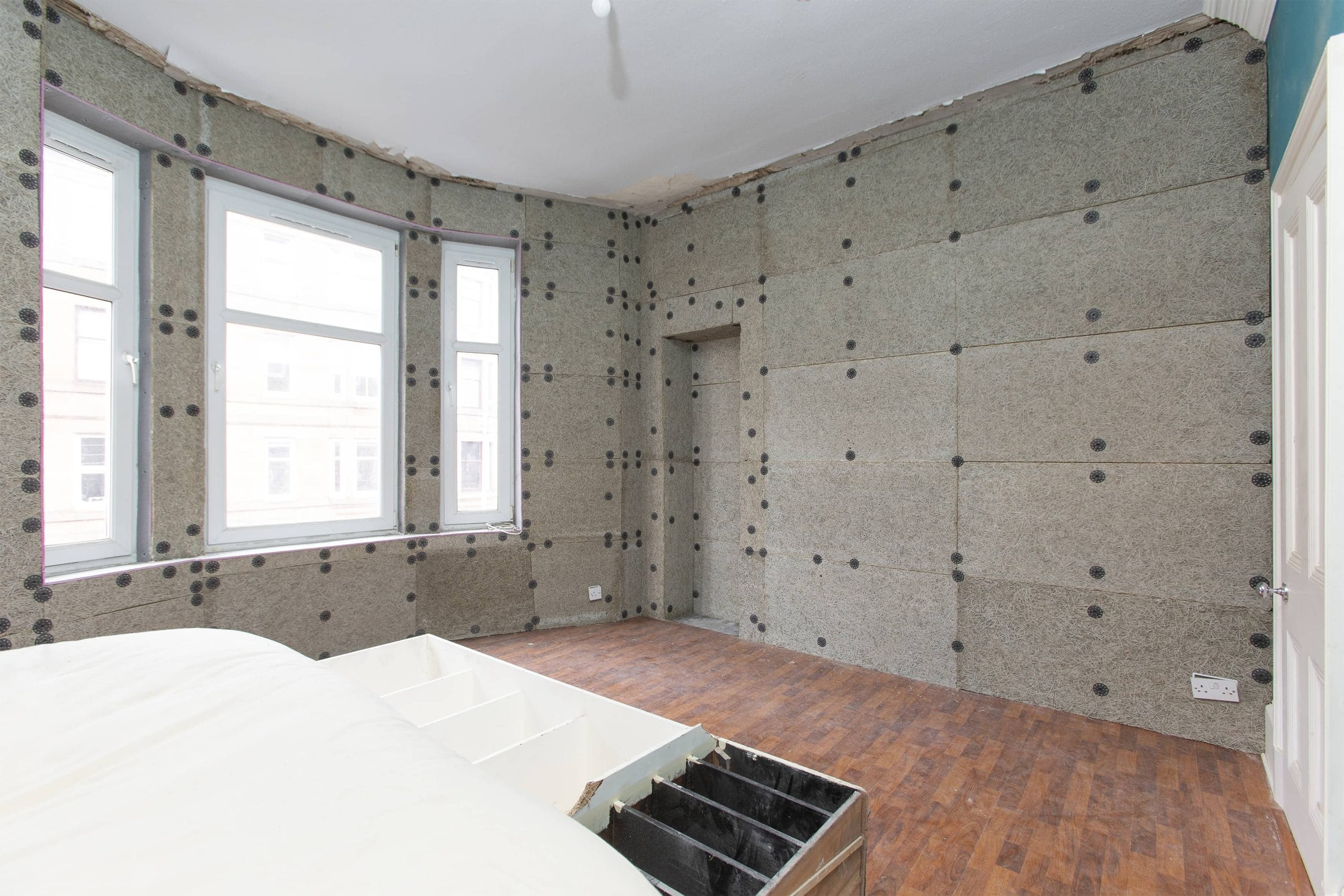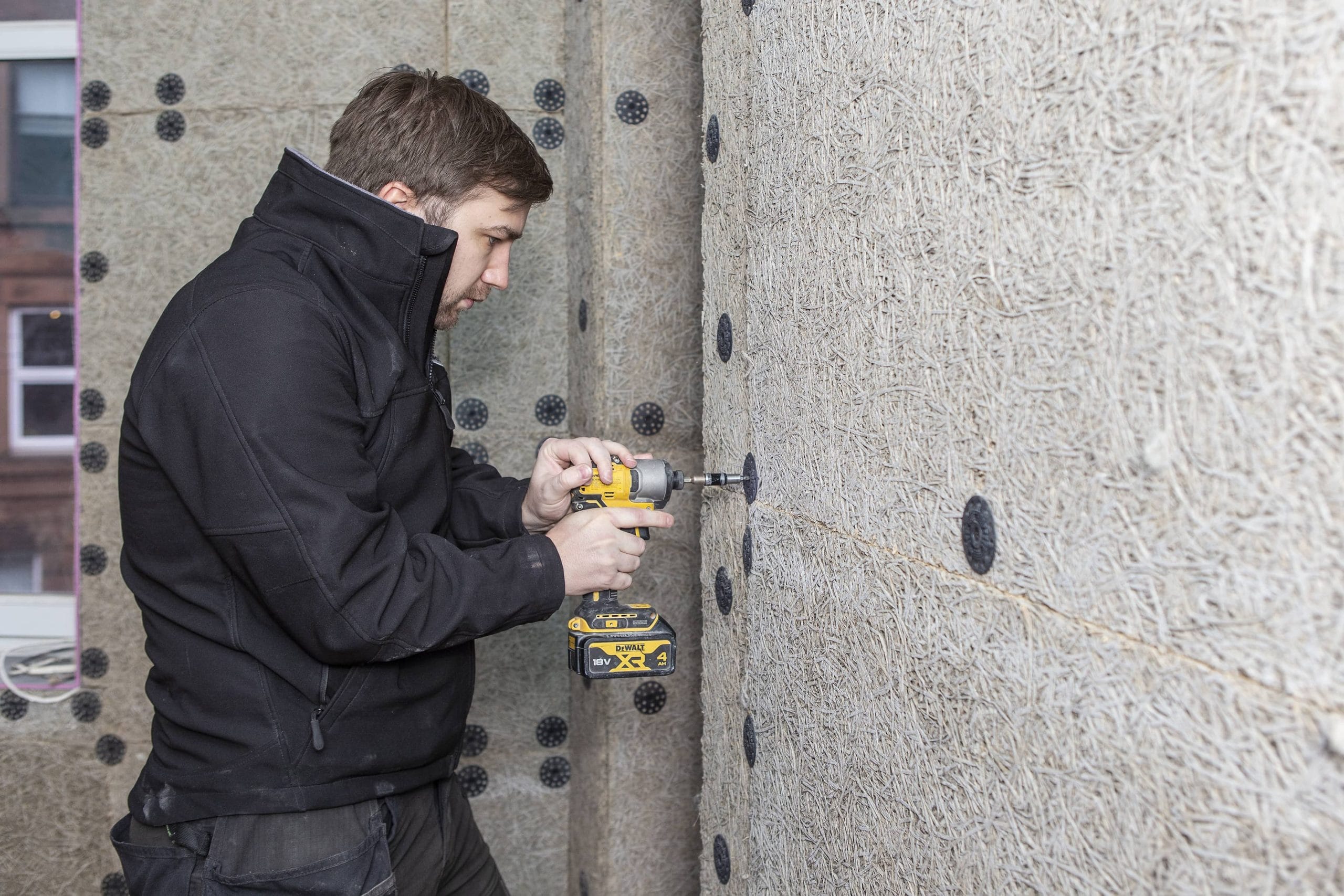Insulation Installers Scotland, based in East Kilbride, has quickly become a trusted name in insulation since starting in March 2021. The company offers a wide range of services and specialises in insulation system design. It has a team of nine staff in Scotland, with business partnerships in Leeds and Wales.
Location notice
Please note that this page contains information and links most relevant for people living in Scotland.
Having TrustMark registration and PAS 2030 accreditation can be highly beneficial for insulation installers. These certifications boost credibility, help installers qualify for government funding, and give them an edge over competitors. They also show that the company meets industry standards, build customer trust, and create opportunities for bigger projects and public sector contracts.
We spoke to Calum Farquhar, director of operations at Insulation Installers Scotland, about his experience of getting accredited.
Background

Getting TrustMark registration and PAS 2030 accreditation
To increase its customer base, Insulation Installers Scotland underwent TrustMark registration and PAS 2030 accreditation. This meant the company could work with households using Scottish Government funding schemes such as the Home Energy Scotland Grant and Loan Scheme, which requires homeowners to use certified installers. Calum explains:
“TrustMark and PAS 2030 lends credibility to you. You are able to access government funding and grant schemes like the Home Energy Scotland Grant and Loan Scheme, which is great for our customers as it means they can have quality work carried out at a highly discounted rate. It allows us to offer insurance backed guarantees to our clients and it shows customers that you’re doing everything to the correct standard.”
Meeting TrustMark and PAS 2030 standards takes a lot of resources. Companies must make sure all installers have National Vocational Qualifications (NVQs), or equivalent, and provide thorough on-the-job training. The process can be complex and costly, with lots of paperwork, compliance checks, and ongoing assessments. However, with internal support and help from its business partner’s compliance team, Insulation Installers Scotland managed to meet the requirements.
Being TrustMark registered and PAS 2030 certified has improved Insulation Installers Scotland’s reputation and expanded its reach. The company now works on UK Government-funded schemes such as ECO funding and the Great British Insulation Scheme, as well as Scottish Government programmes. Following PAS 2030 standards ensures its work meets strict safety and performance guidelines and ensures long-term energy savings for customers.

Meeting growing demand
Rising energy prices have increased demand for insulation. Calum explains:
“The energy crisis has been the biggest driver for higher demand for insulation. When people are having to pay an additional 30 or 40% on their heating bills, that incentivises them to insulate their home and reduce their heat demand.”
Despite more homeowners looking for ways to cut heating costs, Insulation Installers Scotland is careful not to expand too fast. It focuses on quality by improving operations, reducing wait times, and managing warehouse stock better. It also avoids subcontracting to keep its high standards intact.
Advice for installers
Calum’s advice to other installers interested in getting accredited is to fully understand the process, plan for the costs, and have dedicated admin support. Working with experienced companies can make the transition smoother. He also believes that it’s more valuable to have hands-on training and experience in installing insulation than academic qualifications only.

Future outlook
If you’re thinking of making the move to installing green heat technology, explore the resources available on our Green Heat Installers support page, and our insulation and heat pump toolkits.
For more support, reach out to our team at greeninstallerscotland@est.org.uk.
Support for green heat installers
Our Green Heat Installer Engagement Programme helps you discover funding opportunities, navigate current legislation and access resources to help your customers.
Acer Mechanical Services Ltd: MCS heat pump certification
There are many reasons why heating installers are seeing a rise in demand for heat pump installations. Read on to see why Jonathan Daly decided to diversify his business.
RGM Heating Ltd: becoming a TrustMark-registered business
TrustMark aims to help consumers make energy efficient enhancements to their homes while ensuring they have reliable protection when making these decisions. RGM Heating shares their experiences of becoming TrustMark-registered business.
Aberdeen Air Source Heating Ltd: adapting to the increasing demand for heat pump installations
Green heat technology businesses are thriving due to the growing demand for alternatives to gas and oil heating. Read about Aberdeen Air Source Heating Ltd's journey into the industry.
